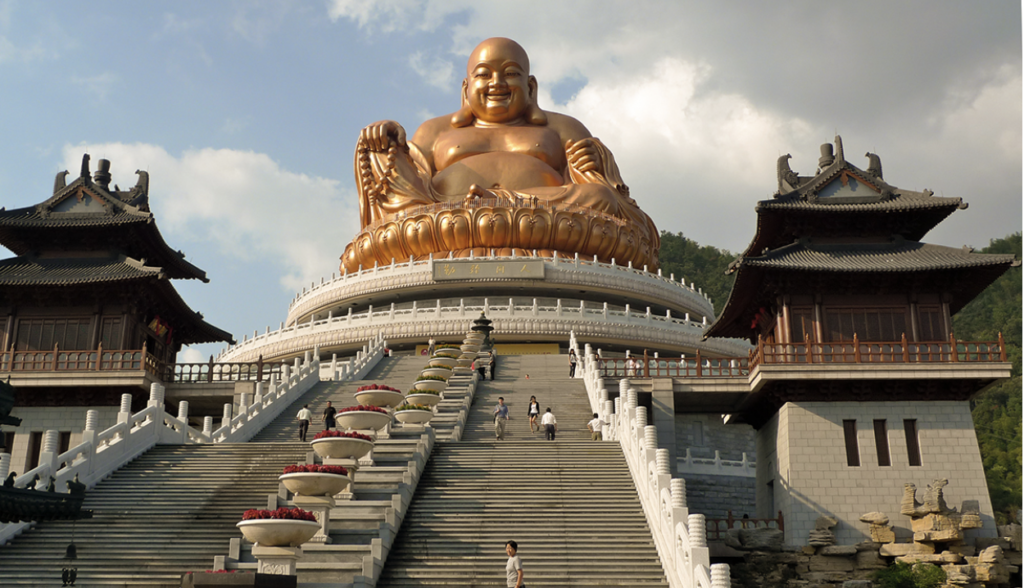
This week we learned about Buddhism and how it’s spread into Japan has not only influenced Japan’s Buddhist beliefs but also how it changed Japan itself. To start off, Buddhism revolves around the four noble truths: The Truth of suffering, The Truth of arising, The Truth of cessation, and The Truth of path. These truths essentially mean in layman’s terms that all life is suffering, there is an origin of suffering, there is an end to the suffering, and the eightfold path leads to ending the suffering by attaining enlightenment and reaching Nirvana 1.
However, suffering in Buddhist beliefs is not torture, pain, starvation, or anything else we may consider as suffering. Buddhist believe that suffering is due to being attached to something (person, animal, or object). By becoming attached to something, people have a desire to be with that thing, as such, there is suffering eventually, be it dying, losing the object, or just moving away from a friend can cause suffering. As such, Buddhists say to remove suffering people should not get attached. However, that is easier said than done. Nonetheless, is it not paradoxical that the very act of wanting to attain nirvana could be considered an attachment?
Questions like the one I asked before, helped change Buddhism to suit the needs of the nation or the region in which the religion found itself developing. Since Buddhism has no centralized leader unlike the pope for Christianity, if there is a part of the religion people do not accept or if it does not conform to some of the traditions and culture already present in the region, then Buddhism will conform to meet the people’s needs. As such, when Buddhism entered Japan it definitely changed. For starters, Buddhism became one of the major religions over time in Japan, and it spread like wildfire. Also, church and state became intertwined with each other. It was almost to the point where Japan’s rulers believed they were given mandates from heaven. This can be seen in Sources of Japanese Tradition, Volume One: From Earliest Times to 1600 where William Th. de Bary explains that, “Tenchi’s assumption of power was justified by numerous portents indicating that he had received the Mandate of Heaven. Temmu found a similar justification in the Golden Light Sutra, which set forth a doctrine of kingship based on merit—merit achieved in former existences and through wholehearted support of Buddhism.2”
However, it was hard for the rulers since in reality the Buddhist monks held all the power since they could mess with a person’s afterlife. As such, they were given an exemption on taxes and the rulers of the time did not dare to go against them since they would lead their followers or the rulers’ subjects against the ruling family. Finally, it was mutually beneficial for both the ruling family and the Buddhist monks to work together since the more land the ruler acquired, the more land Buddhist monks could settle in to spread Buddhism. The more people that believe in Buddhism, the more people that are affected when the ruling powers get into conflicts with Buddhist monk’s demands. As such, did the ruling family have a choice to not listen to the monks when they held the people’s hearts?
Bibliography
Sources of Japanese Tradition, Volume One: From Earliest Times to 1600 2nd edition, edited by William Th. de Bary. New York: Columbia University Press, 2002. (PDF)
- Sources of Japanese Tradition, Volume One: From Earliest Times to 1600 2nd edition, edited by William Th. de Bary. New York: Columbia University Press, 2002.
- Sources of Japanese Tradition, Volume One: From Earliest Times to 1600 2nd edition, edited by William Th. de Bary. New York: Columbia University Press, 2002.
Leave a Reply